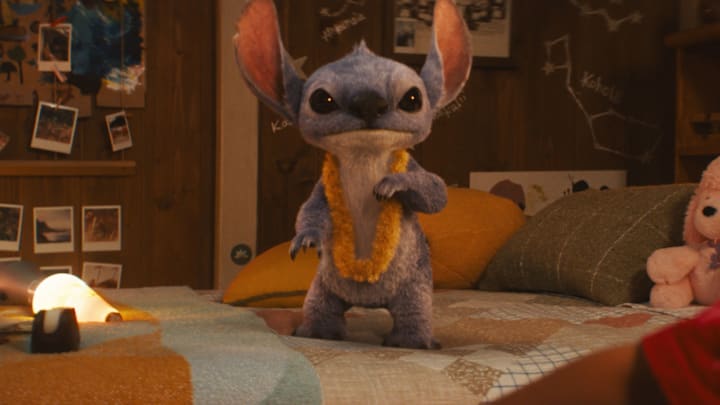It's no secret that reactions to Disney's Lilo and Stitch have been divided. Some fans find the ending acceptable since Nani Pelekai (Sydney Agudong) can keep visiting her sister using the portal gun, and she also gets to pursue her educational dreams away at college. Others, however, couldn't shake the flippant approach towards placing Lilo in the foster care system. While she ends up safely adjusting with their neighbor Tutu (Amy Hill) in the end, many viewers feel that, without some clever intervention by Ms. Kekoa (Tia Carrere), the young girl would've become another statistic—a fact that upset some.
Not only was the adoption aspect hard to reconcile with—but what's more concerning is the fact that Disney changed a beloved animated film's ending to promote what amounts to capitalist propaganda. This is troubling because American culture has seemingly normalized the removal of children from their parents due to unsafe conditions, followed by placements in the foster care system. The numbers detail why. Otherwise, nine million children wouldn't have been separated from their families in the past twenty years alone, as reported by CPS.
A kids' movie featuring a young girl of Hawaiian descent being taken from her only living family member and subsequently granted a convenient placement with a friendly neighbor perpetuates the false notion that things will work out while being processed through the system. In reality, very few children are fortunate enough to be placed with relatives—assuming they have any surviving ones. Moreover, the situations are typically far from ideal.
Even stranger than the film's message is its poor timing. With various accounts of individuals being picked up off the street for deportation reasons—leaving their children stranded without help—it seems crass for Disney to release a movie that ends with placing children into the foster care system. Because, at the moment, many of those babies whose parents were detained and deported by ICE are in government custody. And soon, they'll be in foster care.

While it may not always be true, the live-action adaptation of Lilo and Stitch makes the situation seem like U.S. children facing similar difficulties have relatives to whom they can turn. This is misleading because, truthfully speaking, many of those kids' parents, relatives, and friends are probably immigrants as well. As such, they don't have the same luxury as Lilo (Maia Kealoha). They're not going to see their parents through a portal gun or stay in the only neighborhood/town they've ever known. Instead, they'll go to group homes and possibly even be relocated far away from everyone they know. And if they're very lucky, perhaps they'll find an adoptive family along the way.
So, while it was presumably not the studio's intention to send a conflicting message about the harsh realities of the U.S. foster care system, the movie does indeed sugarcoat the experience that children go through.
Disney's Lilo and Stitch is currently in theaters everywhere.
